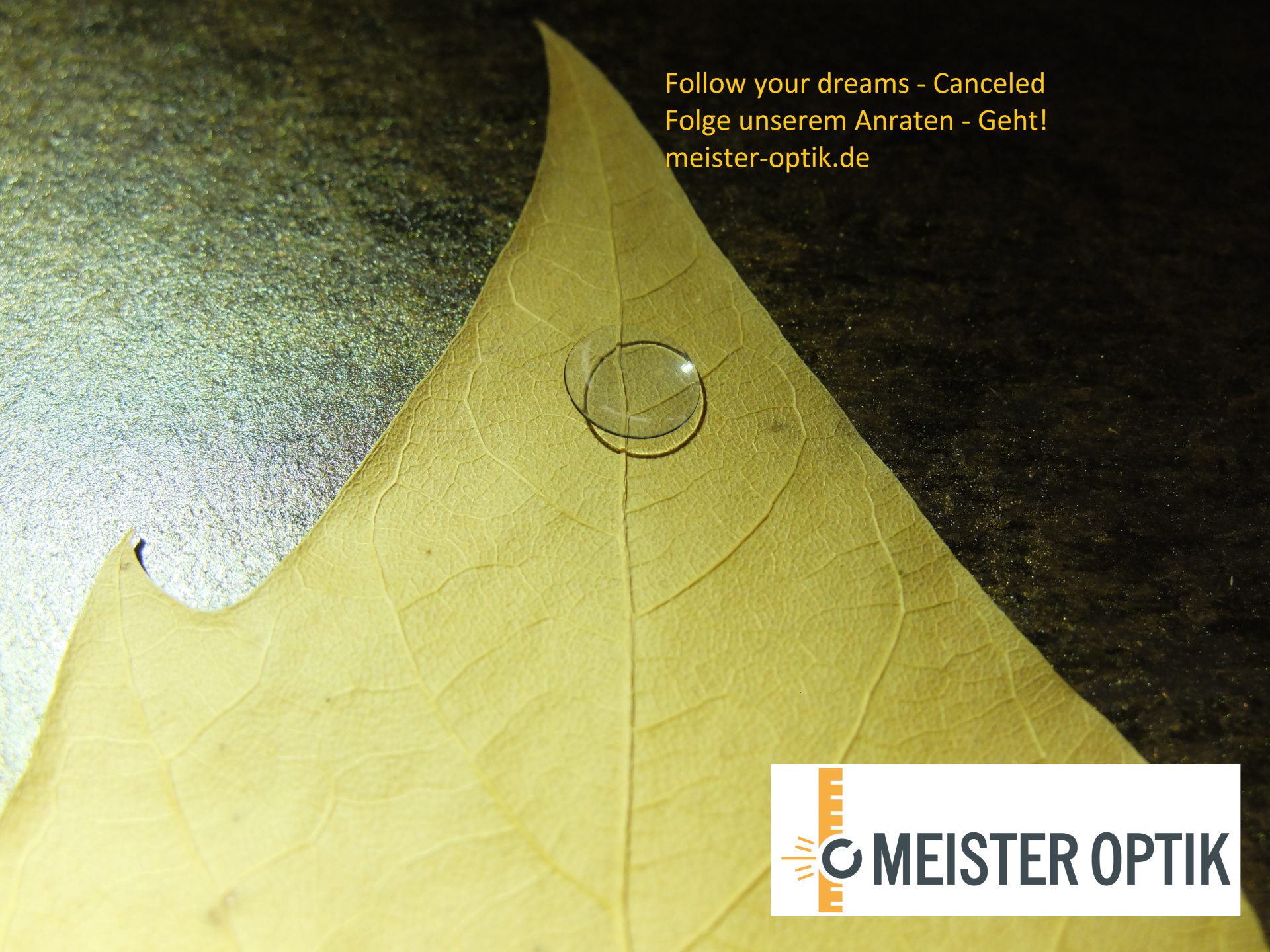Orthokeratologie=DreamLens=sleep&see=Nachtlinsen=i-Night=seefree=sleeplens
Wear contact lenses at night - see well during the day.
Orthokeratology contact lenses are shape-flexible lenses and correct ametropia through a special back surface design. In this way, myopia can be corrected up to 5, and astigmatism = astigmatism = astigmatism up to 3 dioptres. For people from the fifth decade of life there is multifocal "zoom" technology, so that it is still possible to see without visual aids during the day.
No one would use this procedure if it hurt to sleep! Orthokeratology has proven itself and is now recognized as a safe procedure for myopia correction.
Orthokeratology lenses are usually worn every night. Those with lesser ametropia can allow themselves a weekly break from wearing the glasses without missing the corrective effect. Similar to a finger ring, the viscoelastic effect becomes more permanent the longer it is worn. The supply of orthokeratology contact lenses demonstrably slows down the deterioration=progression of myopia.
Orthokeratology lenses are highly oxygen-permeable and slightly larger than conventional, dimensionally stable lenses, and are very comfortable to wear. Ortho-K lenses not only change the geometry of the cornea, they are also optically corrective. With the lenses on, you have optimal visual performance at all times. Depending on the individual stability of the cornea, the correction effect occurs at different rates. The risk of infection is lower than if you wear it day-to-day, since the cornea can now have a barrier-free metabolism.
If you are suitable, you will come to the first visit in the morning after wearing them overnight for the first time with the lenses on your eyes. After the first night, myopia is usually reduced by about 2 dpt. If the first night is uneventful, another visit is made four to six nights later. When fitting, a slight overcorrection of approx. 0.50 dpt is aimed for, since the cornea becomes slightly steeper again shortly after the lens is removed. After a year, the contact lenses are replaced to ensure that they always have the ideal shape and optimal oxygen permeability.
If a visual aid is entered in the driver's license, the official driver's license eye test must be carried out again after the fitting of orthokeratological contact lenses. You can then apply for a new driver's license. It is the lens user's own responsibility to have a driver's license eye test performed again after discontinuing this contact lens supply. Anyone who can only show that they have passed their driving license eye test is in a legal gray area. After more than twenty years of orthokeratology, there is no nationwide regulation.
"FLAT-RATE": Contact lens fitting between €145.00 and €310.00 (FAR & NEAR CORRECTION) depending on the type of treatment. If you opt for orthokeratological night lenses, the contact lenses are calculated precisely for the topography (surface) and individual ametropia. Unlike contact lenses, intellectual property CANNOT be taken back. Contact lens rental monthly depending on the type of lens approx. 60 to 70 euros. Follow-up checks are mandatory every six months.
Orthokeratology is NOT suitable for:
Short-sightedness/myopia greater than minus 5.00 dpt -> this only increases the risk of problems and limitations!
Astigmatism/astigmatism greater than 3.00 dpt.
Hyperopia/long-sightedness greater than plus 1.50 dpt.
internal astigmatism of 0.75 dpt or higher.
photopic pupil diameter less than 2mm.
In the case of presbyopia = age-related farsightedness, there are restrictions:
Very high vision requirements for distance and near
Amblyopia = poor vision in one eye.
Very irregular sleep schedule.
Low myopia and high addition.
Orthokeratology Munich
Night lenses Munich
Sleep and See München
DreamLens Munich
NightFlex Orthokeratology Munich





